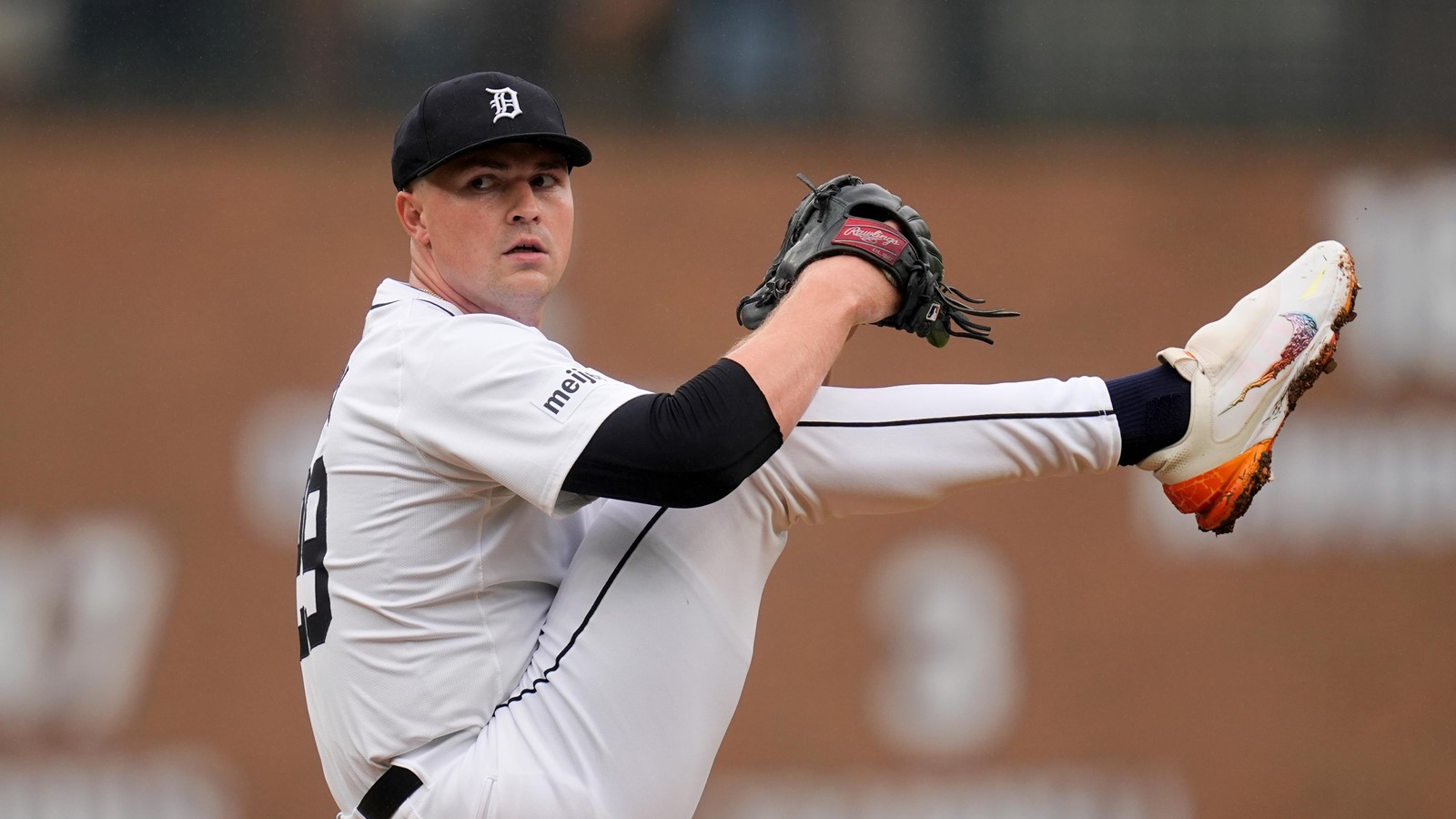LAKELAND, Fla. >> Thinking out loud on Super Bowl Sunday …
The concept of the Tigers having a two-year window to get to a World Series, the so-called “Skubal window,” is troubling.
I get it. Lefty ace Tarik Skubal is under team control through 2026 and, if he sustains his current reign of terror on opposing hitters, he likely will command a compensation package in free agency that will far exceed any contract the Tigers have ever given a player.
So, as the theory goes, better push all the chips in now while he’s still here.
That’s a brilliant plan, as long as you are willing to accept the consequences. Which, even with the club’s burgeoning pipeline of prospects, likely will be a quick return to the bad old days of 2017-2021.
That kind of short-term, flash success is what Tigers president Scott Harris has steadfastly steered this organization away from. Sustainability is what he’s trying to build. That’s why his first order of business has been to beef up the infrastructure in terms of player development, player amenities, coaching development, analytics and scouting at all levels.
It’s why the Tigers’ farm system is now regarded as elite in the industry. It’s why the pitching department is getting raves from pitchers like Michael Lorenzen, Jack Flaherty and others who have had their careers enhanced by it.
The Tigers certainly will make every effort to keep Skubal in the fold. But at the same time, instead of hastily exhausting financial and prospect capital on a two-year window, perhaps the more secure plan is to continue to strengthen the entire foundation so that it won’t crumble if or when Skubal leaves.
Of course, as I say that, the specter of a massive labor dispute hovers. The current collective bargaining agreement between the players and owners ends just as Skubal hits the open market. And by all reports, the negotiations are going to be messy. Not only between the players and owners, but between the owners themselves. Big-market owners and smaller market owners aren’t exactly in lock step on some of the major issues at this stage of the game.
The owners, with growing uncertainty over media and broadcasting revenue with the dissolution of regional sports networks, certainly will push for more cost containment through a lowered collective bargaining tax threshold. They won’t call it a salary cap but depending on how far they push to lower the threshold and increase the penalties, the players may view it as such. And the players won’t budge if there’s even a whiff of a cap in the deal.
The economic landscape is shifting. That seems clear. What I’m not smart enough to figure out, but what owners and agents need to, is whether it will be more beneficial to lock in long-term deals now or roll the dice on whatever the new CBA brings.
Are these $400 million, $600 million and $700 million deals going to go away under the new agreement? Will owners push to put restrictions on deferral amounts? Who knows?
Skubal will be 30 years old entering the 2027 season. He, through his agent Scott Boras, rejected one extension offer from the Tigers. It is unknown what that salary number was. But the Phillies extended right-hander Zack Wheeler for three years at $126 million, a $42 million average annual value.
That contract, which ends in 2027, takes him to age 37. For Skubal, a similar three-year deal would allow him to hit free agency at age 31 and give him some security through the labor fight. The deal also could include an opt-out for that third year, in case the new CBA is more player-friendly.
Such a deal would, seemingly, be in the Tigers’ financial wheelhouse without crippling any efforts toward sustainability.
For sure that’s an overly simplistic way to view this. If it was that easy, they’d have announced the deal already. But the point is, as we move closer to the winter of 2026, agents and teams will be weighing the pros and cons of getting deals done under the existing CBA or waiting to see what the new one brings.
Naively, I’d like to think that could help facilitate a shorter-term bridge extension for Skubal in Detroit, but I wouldn’t count on it.
Incidentally, when I caution against the Tigers pushing all the chips in for a two-year window, I don’t consider their pursuit of free-agent third baseman Alex Bregman as hasty or reckless. Getting him for three or four years, even at $30-$35 million per, would enhance sustainability.
But he’s still holding firm to his demand of a seven-year deal and that is seemingly a deal-breaker for most teams.
Honestly, I’ve reached my saturation point with this. It’s almost comical. Those arguing for the Tigers to sign Bregman at all costs defend their point by talking about how he fills the Tigers’ biggest need.
Well, duh. Of course he does. His fit, his character, his overall baseball value has never been in question. But he’s been a four-win player (Matt Vierling was worth three runs above replacement last season, FYI) and he’s entering his age-31 season. His 4.1 WAR last year ranked 44th in baseball. He is a very good baseball player who would, on paper, provide a sizable impact on the Tigers’ offense. And, to their credit, they’ve been persistent in their pursuit of him this offseason, all the while holding firm to what we believe has been a three- or four-year offer.
It would be great to get him. It would be far from the end of the Tigers’ window of contention if they don’t.
Pitchers and catchers report Wednesday. Honestly can’t wait to put the focus back on what’s actually happening instead of speculating on what might happen.



 PREVIOUS ARTICLE
PREVIOUS ARTICLE
